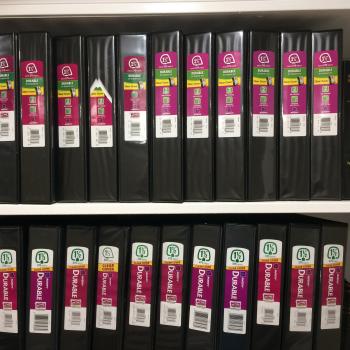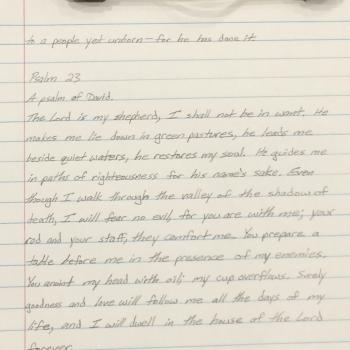
I’m currently handwriting Psalm 105. After more than 100 chapters of handwriting, I am still in the same book with over 40 chapters to go. The process has included many ups and downs. As I’ve considered what I’ve learned, four observations emerge that can inform our faith in any area of spiritual growth.
First, the Psalms cover the wide range of human emotions.
Most churches fully embrace the Bible’s teachings on encouragement, giving, and love. Few highlight the agony of not hearing an answer from God, dealing with the success of one’s enemies, depression, suicidal thoughts, grief over losing a loved one, and other harsh aspects of life.
Thankfully, the Psalms have these areas covered. David sins, yet turns back to God. Asaph is upset over the success of the wicked, yet he still lives for God. There are many unknowns Psalms as well, leaving ancient “journaling” for our reflection today.
Second, the Psalms don’t always provide tidy answers to life’s problems.
When someone loses a loved one, people of faith are often quick to provide meals, Bible verses, and other so-called practical helps. However, the Psalms often express the emotions of grief and other difficult situations and leave readers without a happy ending.
This is certainly a more authentic expression of the realities of life. When we experience grief or trauma, we don’t want a Bible verse or even a meal. What matters is knowing God is still with us, and hopefully that some other people are there to hurt with us too.
Third, the Psalms aren’t afraid to deal with sin.
Many people, and even churches, won’t even mention the word “sin.” In contrast, the Psalms regularly feature lyrics noting the sins of enemies, the sins of Israel, as well as personal sins. Writers are unafraid to admit their weaknesses and need for God.
Repentance, mourning, and fasting are all part of living for God. We may pretend we’re doing “fine,” but there are clearly times when we are not. It’s actually refreshing to recognize the Psalms don’t overlook these ugly aspects of life, but note them as part of living in a fallen world that shows our need for God.
Fourth, the Psalms inspire worship of a big God.
Theologians often talk about the ways our view of God impact how we live for God. If this is true, then reading (and writing out) the Psalms is one of the best ways to expand my view of God. He is the creator of all things, including me. He knew me from eternity past, “knit” me together in my mother’s womb, created me with certain abilities and with a particular purpose, and has sustained me and will sustain me until his plan is completed in my life.
Despite how difficult life may feel, knowing the one who made all things is working in, through, and among me offers encouragement in even my darkest moments.
The Psalms are certainly the most difficult part of Scripture to write out, but not because of the length of the book. It is difficult because it forces me to deal with emotions I don’t like to consider. It challenges me to open up more to God and trust him in ways I have yet to consider. This includes confessing my weaknesses and sins, as well as increasing my dependence on him.
+++
Dillon Burroughs is the author and coauthor of numerous books and blogs about his experiences of handwriting the Bible at the Holy Writ Project on Patheos.com. Find out more about Dillon at Facebook or Twitter.












